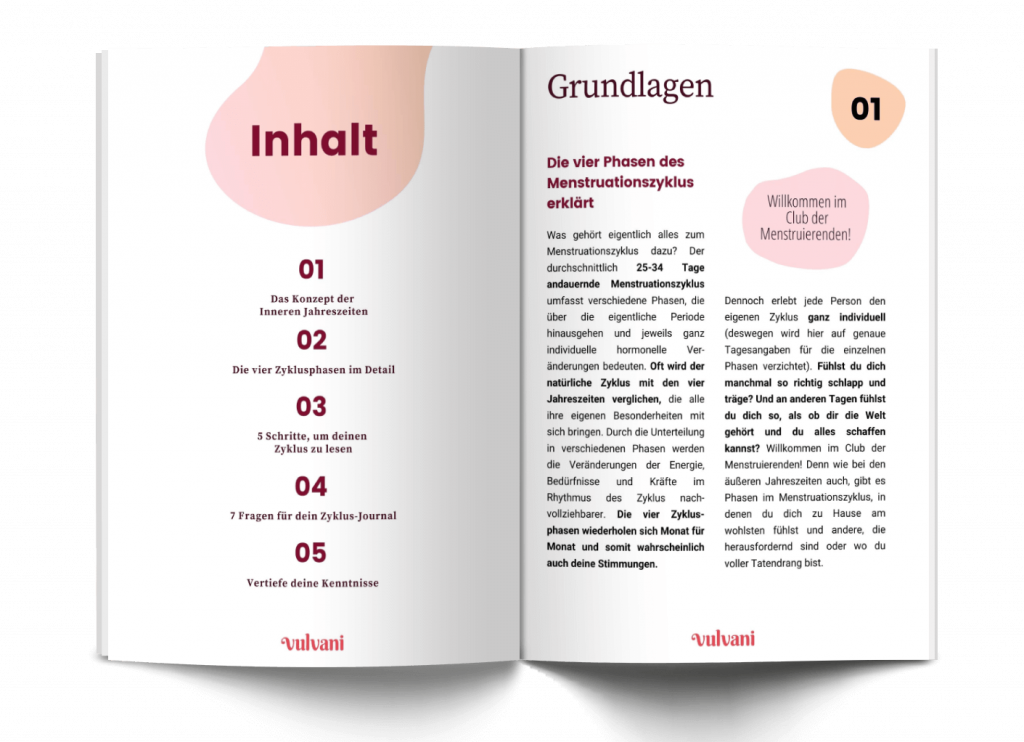
Discovering your menstruation as a spiritual practice
Yasmine understands her menstruation as a spiritual practice and shares in this interview how she is connecting more with her own body through cycle awareness.

The term used for International Menstruation Day by its founding organisation is ‘Menstrual Hygiene Day’. This term has its issues, so in this article I will use the term ‘International Menstruation Day’ instead. However, the organisation is called Menstrual Hygiene Day, and that is the name they use in their social media campaigns and projects. ‘International Menstruation Day’ is not an official term (yet!).
Birth control and period – What’s the connection? Birth control comes in many forms, and it has provided a new means of freedom for menstruators in numerous ways. The ability to have sex without fear of a permanent obligation like a pregnancy is one vital for equal rights. But did you know birth control can also be used to help your period? Many people, including myself, take birth control every day to stabilise their period, reduce their flow, or stop it altogether. However, its effects differ from person-to-person, and from each form of birth control to the next. Some people find it interferes with their menstrual cycle or their emotional state in undesirable ways.
In my case, it has been successful: I take a progestin-only pill every day – specifically one with the progestogen, desogestrel. In the last year, I haven’t had any side effects. It has also stopped my period altogether, without any risk to my health or fertility. I started taking it because my period used to give me severely painful and debilitating cramps and other side effects. My GP advised that the pill could be useful medication for young people whose periods haven’t stabilised yet.
There are numerous types of birth control. Some examples include the patch, the shot, different types of the pill, the vaginal ring, and intrauterine devices (IUDs). The patch is exactly what it sounds like: a patch applied to your skin which releases hormones to prevent pregnancy. You change it for another about once a week, so you don’t have to handle it daily. The shot is an injection of progestin which you get every three months. The vaginal ring is inserted into your vagina and prevents pregnancy through releasing oestrogen and progestin for three weeks. And there are two kinds of IUD: copper IUDs and hormonal IUDs. These are both inserted into the vagina to stop pregnancy and can last up to five years.
Meanwhile, there are several types of the pill. Some examples of hormonal contraception are progestin-only pills, like the one I take, as well as combined pills, which contain progestin and oestrogen. Even between these categories, pills can vary in terms of which hormones they contain, and when. Monophasic pills are pills which contain the same hormones each time you take the pill. Triphasic pills have varying amounts of hormones depending on where in the month you are, to facilitate a more natural cycle. Each pill has a specific time to take it in, in order to remain protected. For mine, there is a twelve-hour period of flexibility if I forgot to take it, but other pills have much shorter periods. They should be taken regularly, at the same time each day.

Seeing as hormonal birth control affects your menstrual cycle in order to prevent pregnancy, it’s natural that it might affect your period. However, in most cases hormonal birth control does not stop your period – my experience is an outlier in that. But it may cause spotting (‘breakthrough bleeding’) in the first few months; unexpected bleeding is a major reason cited for people giving it up.
For pills, spotting is especially common with progestin-only pills. It’s also likely to happen if you forget to take your pill outside of the window you should take it in. Pills are typically provided in sets of 28, where traditionally seven would be a placebo to allow your period to take place that day. Nowadays, there are more diverse options, so it is best to consult your GP if you have concerns. Emergency contraception such as the morning after pill can cause spotting or delay a period, but not significantly.
Contraceptives like injections and implants are progestin-based and act more slowly. They can cause irregular bleeding as well but are likely to stop your period from happening at all after a while.
IUDs have different effects depending on the time. Copper IUDs work as a form of birth control because copper is a spermicide, not because they affect the menstrual cycle. They have minimal effect on your period, but can increase how heavy, painful, or irregular they are, which settles with time. Meanwhile, an IUD which uses hormones like progestin can cause spotting, but later cause your period to be lighter. It may even stop it: 20% of users don’t have a period for three months or more in the first year.
Finally, the ideas behind the vaginal ring and the contraceptive patch are similar. Both are applied for three weeks at a time and use hormones to stop ovulation during that period. They can be removed for the fourth week, to allow menstruating to occur naturally, or replaced if you wanted to skip that period.
Even if you have your period on hormonal birth control, it will act differently to your usual period. This is because instead of being triggered by the release of the uterine lining and egg, the hormones stop the egg from being released at all. Your period hormonal on birth control is a ‘withdrawal period’, where changes in hormonal balance cause the lining to build up or release independently of the egg. This period should last the same length of time – about four to eight days. However, it might be irregular in the beginning and might not always come when expected.
Overall, birth control decreases how much you bleed in one period. Symptoms that something is wrong might therefore include extremely heavy bleeding, bleeding after sex, or bleeding for longer than expected. If you stop having periods altogether, this is nothing to worry about. It isn’t at all dangerous to skip a few periods.
Using birth control – especially having to take it every day – can seem like a big commitment. And it is one that is important to talk with your GP about if you intend to pursue it. Especially since the approach that works best for you may take some time to find. But my experience is that it is not nearly as daunting as it seems. It has definitely improved my life for the better! If you’re considering it, I encourage you to talk to your GP and see what options are available to you.

Would you like to try a hormone-free contraceptive method? Then check out our article on NFP! Comment below with your favorite birth control method and your experience with it!



Yasmine understands her menstruation as a spiritual practice and shares in this interview how she is connecting more with her own body through cycle awareness.

What options are there for male birth control? Ailsa delivers an overview of what is available now, and what may come in the future.

Sustainable underwear? The founders of TUKEA talk about fair labour conditions, body diversity and body literacy.
…and empower countless women to make empowered choices about their bodies!

